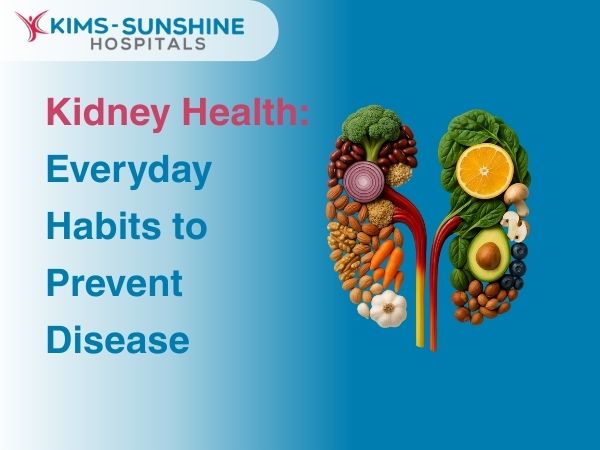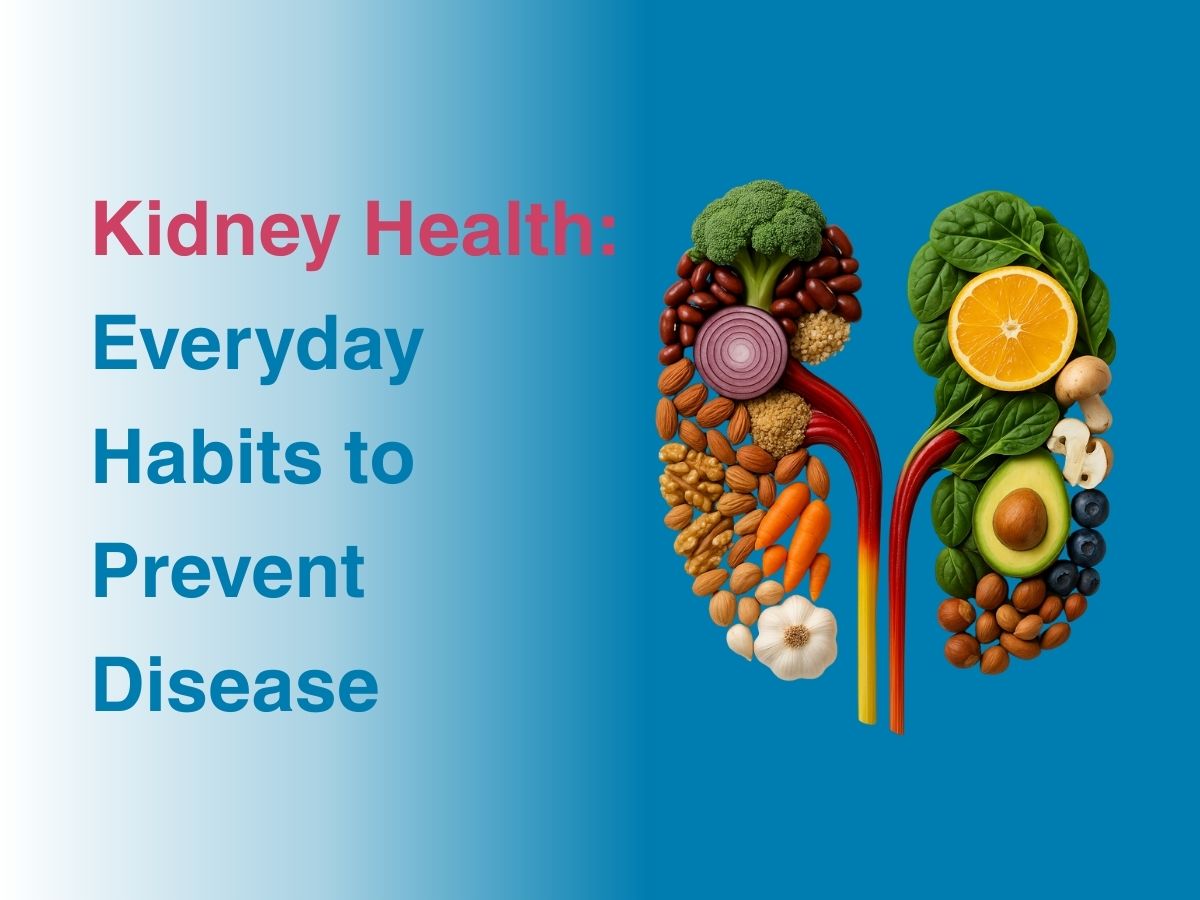
Kidney Health: Everyday Habits to Prevent Disease

The kidneys carry out the ceaseless task of filtering the blood, producing hormones and maintaining blood pressure. While they work with quiet persistence, they are also vulnerable to the choices we make every day- which means that kidney health is not secured by miracle treatments but by often-overlooked, seemingly mundane decisions.
Early Signs Of Kidney Problems
The difficulty with kidney issues is that they DON’T show or cause any outward symptoms that are easily recognisable. But, it pays to be cautious and aware, always – so here are 5 early signs of kidney problems
- Feeling unusually fatigued – DON’T brush it off as work pressure
- Puffiness around the eyes – mistakenly thought to be due to lack of sleep
- Swelling of the ankles as just standing too long- but it is actually due to an overburdened kidney causing fluid retention in the limbs.
- Frothy urine is NOT trivial- as it may be due to infections, protein or other components that may be leaking into it.
- Lower back discomfort is not always due to a strained muscle
Those who pay attention to these subtle cues and consult a doctor early give themselves the chance to intervene before the situation spirals, which proves that vigilance towards one’s own body is not paranoia but wisdom.
Healthy Kidney Diet Plan
The food we place on our plates is not merely sustenance but also instruction to the kidneys on how much strain they must bear, because meals saturated with salt, processed foods, fried snacks and sugar force the nephrons to work overtime like overburdened clerks sorting endless paperwork. A diet anchored in seasonal vegetables, fresh fruits, pulses, whole grains and lean proteins offers ease and nourishment and when flavour is sought through herbs and spices rather than excessive sodium, or when antioxidant-rich foods like spinach, berries, oranges and turmeric are favoured over oily and packaged temptations, the kidneys breathe easier, filtering with efficiency and resilience. In a country where food is culture and meals are moments of connection, aligning taste with kidney-friendly choices is not deprivation but a quiet act of recalibrating to healthier practices.
Regular Kidney Checkup Importance
The challenge with kidney decline is that it rarely makes itself obvious until significant damage has already occurred. This is where regular health checkups serve as the torchlight that reveals problems before they take root. Simple tests that help in this endeavour are-
- Urine analysis to detect protein leakage
- Blood tests for checking levels of creatinine and eGFR
- Regular blood pressure monitoring – non-invasive but can provide invaluable insight into whether the kidneys are straining silently.
When these screenings are incorporated into routine health assessments, especially for those with risk factors like diabetes, hypertension, or family history, they allow for early interventions that preserve function, reduce complications and extend quality of life.
Conclusion
When it comes to protecting kidney health, there is no one grand solution or magical shortcut. It begins with listening to the faint signals our bodies give, choosing meals that nourish rather than burden, respecting the medicines we take, scheduling routine checkups even when we feel perfectly fine and recognising that our daily lifestyle- from hydration and sleep to exercise and stress management- is not a background detail but the stage upon which kidney resilience is built. So, if we wish to avoid the heavy burdens of dialysis or transplant later in life, the path is not found in panic-driven measures but in calm, consistent and thoughtful choices that you make today, because in the end, kidneys thrive on consistency and nothing else.






